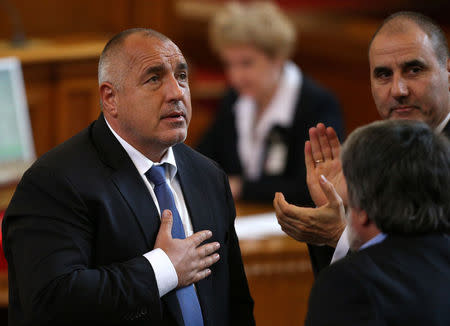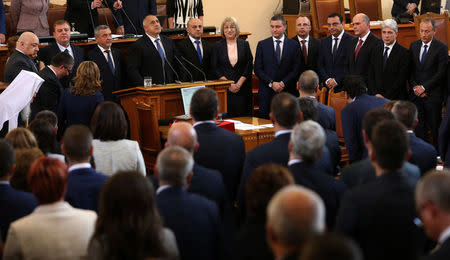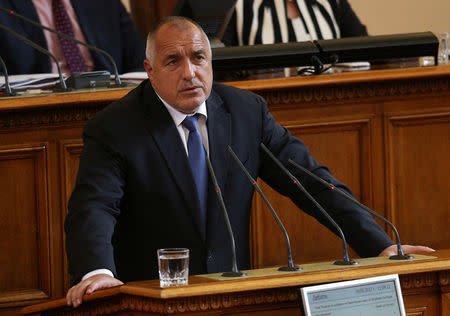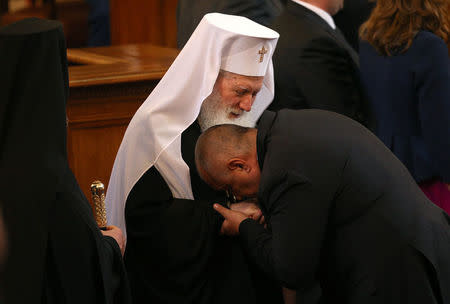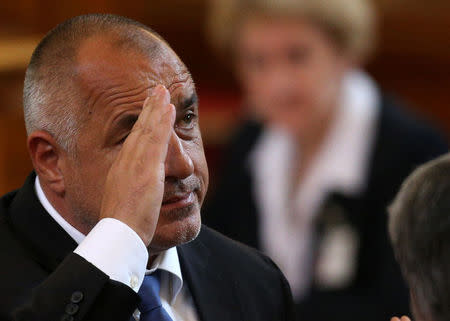Back in power, Bulgaria's Borisov promises income boost
By Tsvetelia Tsolova SOFIA (Reuters) - Bulgaria's new prime minister Boiko Borisov promised to spur economic growth and increase incomes in the European Union's poorest member state as his coalition government was endorsed by parliament on Thursday. The vote was seen as a formality after Borisov's GERB party, which won a snap election in March, sealed a coalition deal with United Patriots (UP), an alliance of three nationalist parties, to form a one-seat majority government. The small populist Will party voted to support the new government, while leftist Socialists and ethnic Turkish MRF party voted against. Third-time Prime Minister Borisov pledged to build more highways and fight smuggling to steer the economy. That should lead to an increase of the average monthly salary by 50 percent in four years, while maintaining income and corporate taxes unchanged at 10 percent, he said. "We will lead policies and apply measures to increase the incomes of the people," 57-year-old Borisov told parliament, ahead of the vote. Borisov pledged to set up a special body to tackle high-level graft, but analysts remained cautious on his reformist drive. Bulgaria ranks as EU's most corrupt country according to the index of Transparency International and its failure to uproot wide-spread graft have kept the country out of EU's passport-free Schengen travel zone and scared away foreign investors. ONE-SEAT MAJORITY Borisov said the government would allow for some fiscal loosening to raise the minimum state pensions, among the lowest in the EU, but plans to gradually reduce fiscal deficit and achieve a balanced budget by 2020. On his first day in office, Finance Minister Vladislav Goranov said the economy would grow 3.3-3.5 percent this year, faster than previously forecast, and outlined that planned social spending would not push the fiscal deficit beyond 1.4 percent of GDP in 2017. He said the budget shortfall may be smaller, given plans to boost tax collection and because of slower use of EU funds. The average monthly salary, at 962 levs ($538), remains the lowest in the 28-nation EU and compares with a minimum wage in Germany - of 1,440 euros ($1,573). The new government that brings the nationalists to office for the first time will respect Bulgaria's commitments to its allies in Brussels and Washington. Borisov, a former bodyguard and fireman, triggered the election by resigning after a GERB-backed candidate lost a presidential election in November to Rumen Radev, a Russia-friendly ally of the Socialist party. Despite its fragile one-seat majority, the government is expected to last at least until July 2018, as the opposition are unwilling to excite political instability while Bulgaria takes over the rotating six-month EU presidency as of January. (Additional reporting by Angel Krasimirov; Editing by Ralph Boulton)

 Yahoo News
Yahoo News 